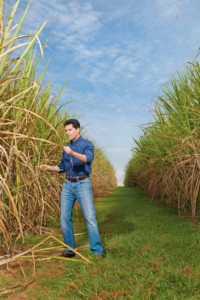
The role of story and myth in our troubled times.
The role of story and myth in our troubled times.
A Bosnian man who’d moved to the USA after the war wrote of all the difficulties he had had in adapting to a new culture. There were things that he just couldn’t understand like why Americans would leave the house with wet hair, when everyone knows that if you go outside with wet hair it gives you encephalitis! My boyfriend tells me this story with a certain level of self deprecation as we walk barefoot on the beach. I’ve been laughing at him for worrying about me getting cold feet after having had the flu. “I think it’s good for me!” I protest, but then he is Spanish, and in Spain it seems you can’t even go to the toilet in the night barefoot and not be told off. God forbid you walk down the street with no shoes, unless you seek disapproving looks from the Señoras that pass by. But then my boyfriend recalls when he was a child many people still could not afford shoes following the Spanish civil war and had to go barefoot.
The reasons we believe what we believe run deep, often so deep in the past we have no access to the original reasons why. The Bollywood director Shekhar Karpur once said “we are the stories we tell ourselves” and indeed societies and cultures are constructed almost entirely upon stories. Of course there are other powerful forces at work, but what the general populous buys into are stories.
For example, why does chemical agriculture remain the dominant food growing method in the world? Well, there are number of commonly held beliefs, stories that are told to uphold this idea. The dominant one being that we have no other option, that we couldn’t possibly produce enough food any other way. I have, until recently, struggled greatly with this narrative. It made me feel I was being elitist wanting to eat organic food and promote organic agriculture in the world. Why should I eat food free of chemicals when millions can’t afford to? And how are we going to feed the world otherwise? But I have always had an instinct that this story we are living by just isn’t true.
Then I met Leontino Balbo, a Brazilian farmer who grows 1/3 of the worlds organic sugar. He has spent 30 years figuring out how to do so without chemicals, without burning the cane and with the help of all the living systems and organisms within nature. As a result his sugar estates now yield 24% more than the surrounding conventionally grown sugar. This alone is impressive, but it is just the start. The health of the water cycle on the land has returned, the streams from the farm run clear into the muddy rivers and new springs and water courses have arisen which have been planted with trees to protect them. Perhaps most exciting of all is the return of biodiversity to the farm.

Courtesy of Wired Magazine
Meeting Leontino has allowed me to believe in what deep down I already knew, that working with nature not against her, holds the solutions for the big problems facing humanity. And it is here that we might dive a little deeper into the role of stories.
Storytelling is as old as humans themselves, telling each other tales around the fire at night is something humans always did until relatively recent times. But were these just tales told in order to entertain and hold oral histories? Well yes, but I believe they went much further than that. Storyteller Martin Shaw describes ‘myth’ as “the language in which the world thinks.” A strange concept to the modern scientific mind to whom myth has come to mean an untruth. For animist cultures, the idea that myth is the language that lies between all things is not strange at all. For they know how to listen to the subtle influxes that are available to those who are tuned in.
Leontino Balbo gets this it seems. On his journey towards understanding how to work with nature rather than against her, he reached a point when he realised he would never achieve what he wanted if he only used a scientific approach, as the reductive scientific method is unable to contemplate the complexity of whole living systems. So instead Leontino would go to the forest and spend time observing and listen to those subtle influxes within the nature of the world. The human body is an extraordinary organ of perception, our bodies are the piece of the earth that we inhabit and therefore innately tuned to greater body of the earth and the consciousness of all matter.
Leontino’s ability to perceive the complex connections between all things allowed him to create a system within which those connections continue to arise and multiply. In year 8 of development, a rare fungus returned to the fields which breaks down the cellulose of decaying plant tissue. That same year, another, pathogenic fungus arose which only attacks a single species of shield beetle which damages the cane crop. This is by no means the only spontaneous biological defence to arise. This expression of biodiversity was mirrored in more exciting species of invertebrates, birds and mammals, including the anteater, ocelot, puma, jaguar and the Brazilian wolf.
It is from this place – connected to the consciousness of matter, that true myth too is written, a translation of this language that lies between all things, a language which we access through the imaginal realm and images, the feelings senses of the body and intuition.
I believe one of the great roles of myth is to lead us back to who we are in this way, as feeling, instinctual beings. It is part of the human condition that the mind wants to take control, it thinks it knows best, even though it too is made up of matter and that matter has a consciousness which precedes the cognitive function of the mind.

Myth is a language which, like poetry bypasses the cognitive mind and speaks directly to the consciousness held within our bones, it awakens ancient knowledge held there, passed down from our grandmothers and grandfathers who lived 10,000 generations ago, and who understood what it meant to live in tune with nature and with reverence for her.
Current western belief systems are shackled to hard facts. A system obsessed with knowledge and control. It is easy to see why this obsession arose, science has been able to disprove many of the stories we tell ourselves, like wet hair causing encephalitis and the unhealthy nature of walking barefoot. However, we have thrown the proverbial baby out with the bath water by brandishing anything outside or beyond science as an untruth. We have disenfranchised ourselves from the deeper truth of who we might become as human beings, because a society based on fact and fact alone by its very nature infantilises its citizens – we must trust science above our inner knowing or instinct.
Facts are a poor substitute for truth telling. Martin Shaw
Consequently instinct is a dirty word in our culture, but perhaps science is starting to explain it in its own language. Neuro-science shows that the information that we absorb on a sub-conscious level is thousands of times more complex than that which the conscious mind could ever handle. The key is how do we learn to listen to that complex information rather than the conscious mind who is trying to work things out. The information the sub-conscious is processing is far too complex and nuanced to dissect, hence we access it through our felt senses, images and gut instinct. We have to learn to do this, and at first it can be very difficult to discern what is really an instinct and what is the mind creating a story that masquerades as instinct!
Working with the complexity of living systems requires a relinquishment of control and the development of trust in the power of nature. Our conscious minds can’t conceive of this complexity, but our other senses can.
The systems being developed by people like Leontino working with crops, and Caroline here at Wilderculture working with pasture and livestock, work with this complexity and the cultivation of the humility to know that it is not only impossible to maintain control over nature, but an attempt to do so shuts down natures attempts to play her part. Controlling nature creates more problem than it solves.
The work of Leontino and Caroline create new stories of hope. A frontier of possibility of humans living in harmony with nature. But in order to do this we must learn the language that lies between her and us. To dive a little more into this I will leave you with the sage words of Martin Shaw, one of our great contemporary storytellers, talking about the role of myth and story in our culture.
Georgia x


No Comments